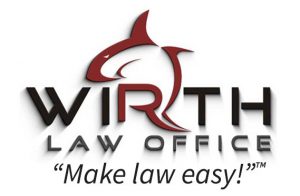 You have probably heard the term “accessory” or “accessory after the fact.” But like most people without a legal background, you may not know what the term means or even know that it is a crime in Oklahoma. Being an accessory or an accessory to a felony is in fact a crime, although it is almost always a crime that arises out of our desire to help friends and relatives in legal trouble. Here is what you need to know about the crime of accessory to a felony and how it is handled in Tahlequah, Oklahoma.
You have probably heard the term “accessory” or “accessory after the fact.” But like most people without a legal background, you may not know what the term means or even know that it is a crime in Oklahoma. Being an accessory or an accessory to a felony is in fact a crime, although it is almost always a crime that arises out of our desire to help friends and relatives in legal trouble. Here is what you need to know about the crime of accessory to a felony and how it is handled in Tahlequah, Oklahoma.
Accessory To A Felony Defined
An accessory to a felony is legally defined as:
- anyone who, after the commission of any felony,
- conceals or helps the offender,
- knowing that the offender has committed a felony, and
- with the intent that the offender avoid or escape from arrest, trial, conviction, or punishment.
Okla. Stat. 21 § 173
Under the law, the principal is the offender. However, the accessory or accessory after the fact is a person who knowingly helps an offender evade the consequences of their actions. Okla. Stat. 21 §§ 171, 172
Defenses: Accessory To A Felony
Many defenses arise directly from the elements of a crime. Facts and evidence that tend to disprove any element can be crucial to building a strong defense. Here are some of the more common defenses that arise out of these elements.
Lack of knowledge. If the person helping the offender had no knowledge of the offender’s underlying criminal action, then helping is not a crime. This is more common than you think.
Here is an example. A young adult son has moved home after college and unknown to his dad has been selling prescription drugs to his friends. The son comes home one night distraught and asks his dad for money to get a bus ticket to visit his Aunt Flo in another state.
His dad doesn’t recognize that his son is distraught. Thus, he thinks it is a great idea if he goes to see his aunt. So, he gives his son the money needed. The son packs and heads out of town.
Lack of intent. The accessory must know that the offender committed the crime and render aid to the offender with the intent to help them escape arrest or punishment. In the example above, the father had no knowledge of the underlying crime and he also had no intent to help his son escape the law. Often knowledge and intent go hand in hand.
A prosecutor will try to prove their case using circumstantial evidence such as a defendant’s words or actions outside of the actual hiding or aiding. For example, if the accessory worriedly confides to a friend about the situation, the contents of that conversation may be used as evidence of knowledge and intent.
The underlying crime must be a felony in Tahlequah. If the underlying crime is a misdemeanor, you cannot be convicted of being an accessory.
Penalties Vary For Accessory To A Felony
Penalties are directly related to the felony committed by the offender and the penalty for that felony.
If the underlying felony is one that is punishable by four years or more in prison, an accessory can be sentenced up to half the maximum penalty allowed for that felony. If the felony is punishable by less than four years, you could face up to a year in county jail. Okla. Stat. 21 § 175
Likewise, if a fine is involved for the underlying felony, the accessory may be fined up to half the amount. And if the felony is subject to both a fine and a jail sentence, an accessory could end up paying up to half of the fine amount and serving half the longest jail time that can be imposed for that felony.
A conviction for accessory to murder is particularly harsh. For murder in the first degree, an accessory must serve between 5 and 45 years in prison. For murder in the second degree, an accessory may serve between 5 and 25 years in prison.
A Tahlequah attorney can help you understand what defenses may be available to you and can help you protect your rights and freedom.
Low-cost Initial Consultation: Tahlequah Criminal Defense Lawyer
Please contact a Tahlequah criminal defense lawyer to discuss your available legal options if you’ve been charged with accessory to a felony in Oklahoma.
For a low-cost consultation, call Wirth Law Office – Tahlequah at 918-458-2677 or toll free at 1-888-447-7262.
Or, if you prefer e-mail, you may enter a legal question in the form at the top right of this page and we’ll contact you by e-mail as soon as possible.








